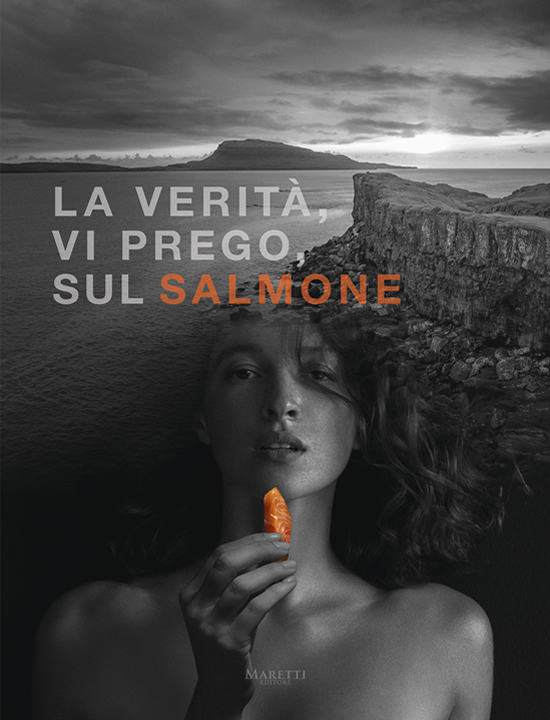
The first comparative study of the
world of salmon, thoroughly analysed.
This book enters the debate
of recent years, challenging
the inaccurate generalisations stemming
from sensational scoops that influence
consumers and spread mistrust.
Tell me
the truth
about salmon
This book aims to shed light on the heated debate surrounding this noble fish. The concerns that have stirred up public opinion about salmon as a foodstuff relate to risks to human health and the environment, mostly due to intensive farming. These include the use of antibiotics, pesticides, and chemicals, as well as pollutants such as dioxins and mercury, the spread of disease, the impact of microplastics and the accumulation of waste in the ecosystem. All of this is further aggravated by the suffering inflicted on the poor salmon, which are very poorly farmed.
All of this is true. But there's one problem: the risk of tarring everyone with the same brush. This expression is said to originate from an old sheep-farming practice, where animals' sores were treated with tar, and the entire flock underwent the same treatment. The Italian equivalent comes from the farmer's practice of cutting grass, separating the healthy from the harmful, or even deadly, kinds.
For this reason, the authors set out to publish a meticulously documented and authoritative book – avoiding pedantry but attentive to formal beauty – with the aim of serving as a new balanced perspective on this controversial issue. After reading "The Truth About Salmon", anyone will be able to distinguish between a healthy (and delicious) salmon and a harmful (and low-quality) one, and to identify, one by one, the many causes that make this difference so profound.
Tell me the truth about salmon
Maretti Editore
in Italian and English
362 pages
Preface by Andrea Grignaffini.
Historical and scientific essay
by Professor Ballarini.
Analysis of virtuous farms and salmon types
by Claudio Cerati.
Nutritional study
by Dr Omar Scomodon.
Salmon in art history and Salmon in the kitchen
by Alessandra Meldolesi, with contributions by chefs Mara Fronza, Stefano Mazzone and Guido Porrati.
Photography
by Federico Nero and Lido Vannucchi.
Photographic section dedicated to the Environments
curated by Ólavur Frederiksen.
Illustrations by Barbara Fragogna.
Editorial supervision
by Romina Savi and Maria Paola Poponi.
Art direction
by Filippo Maglione.
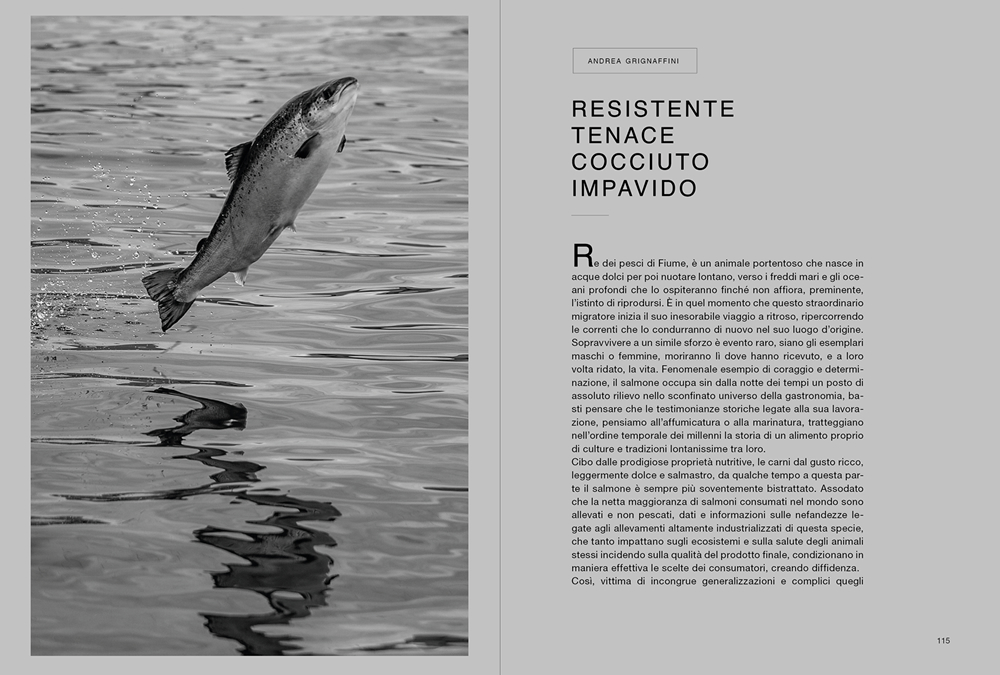
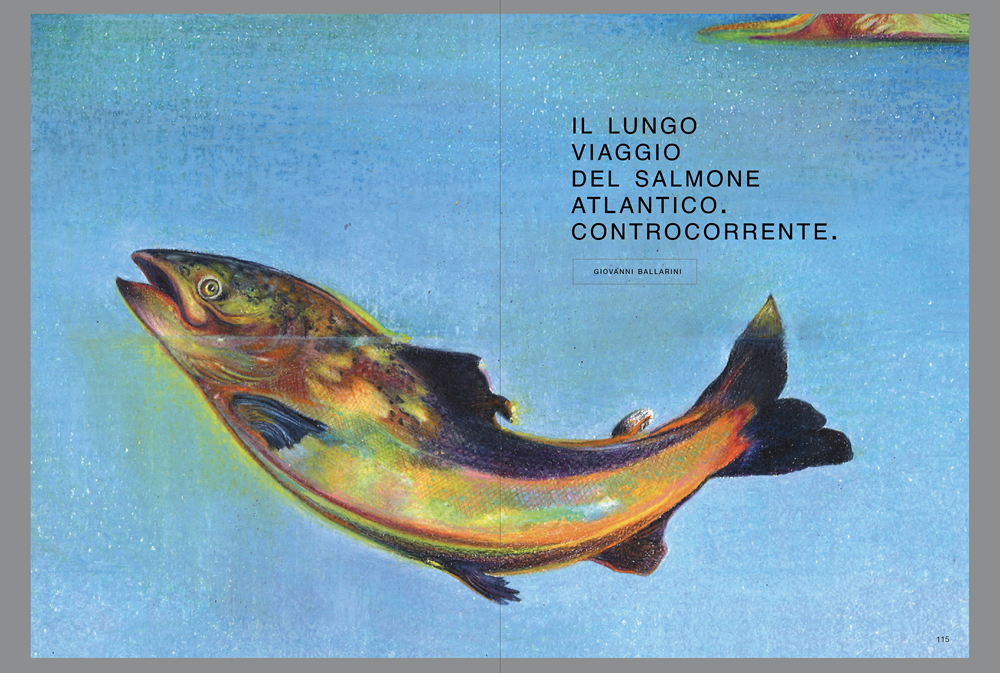
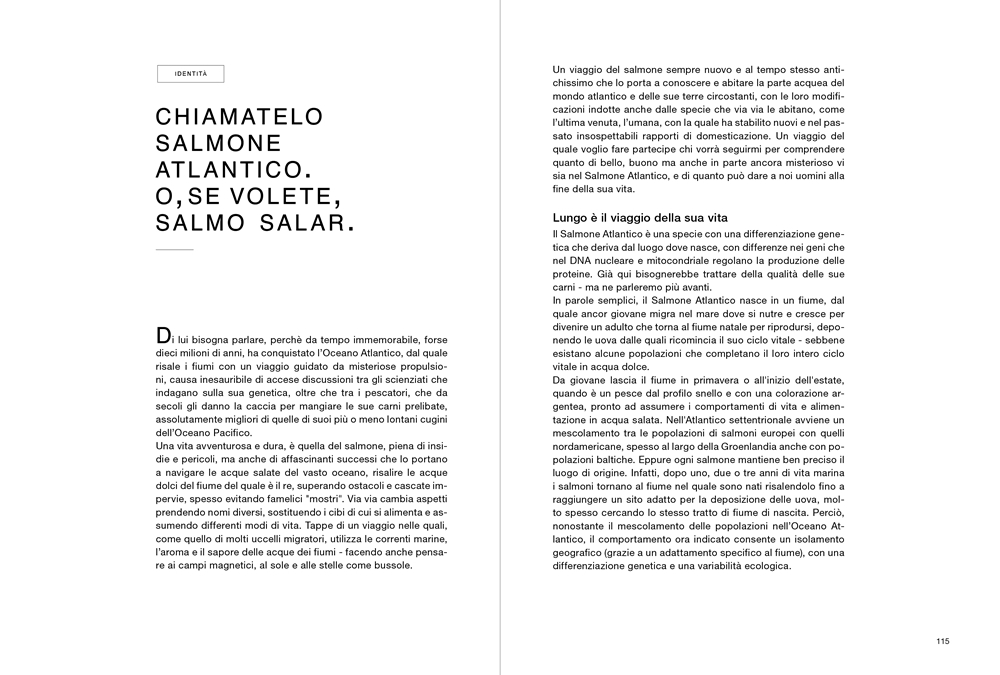
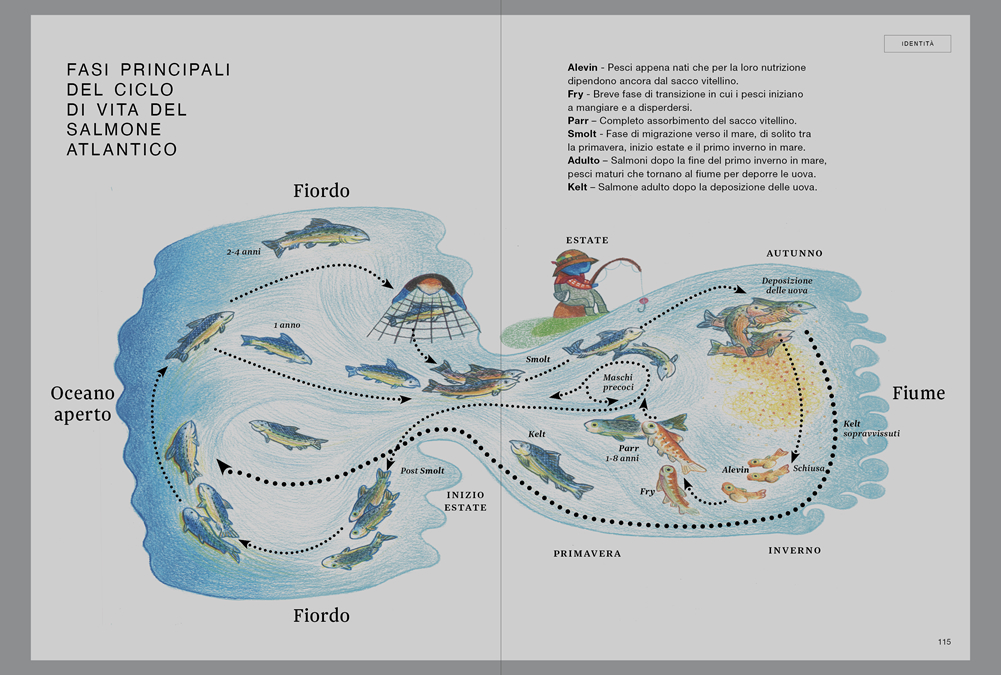
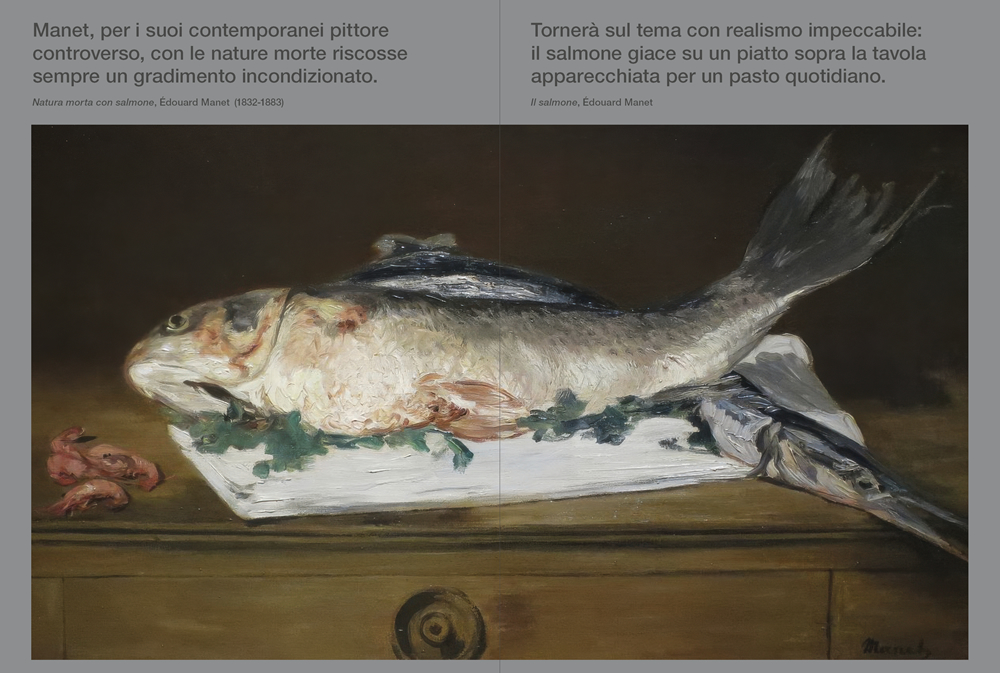
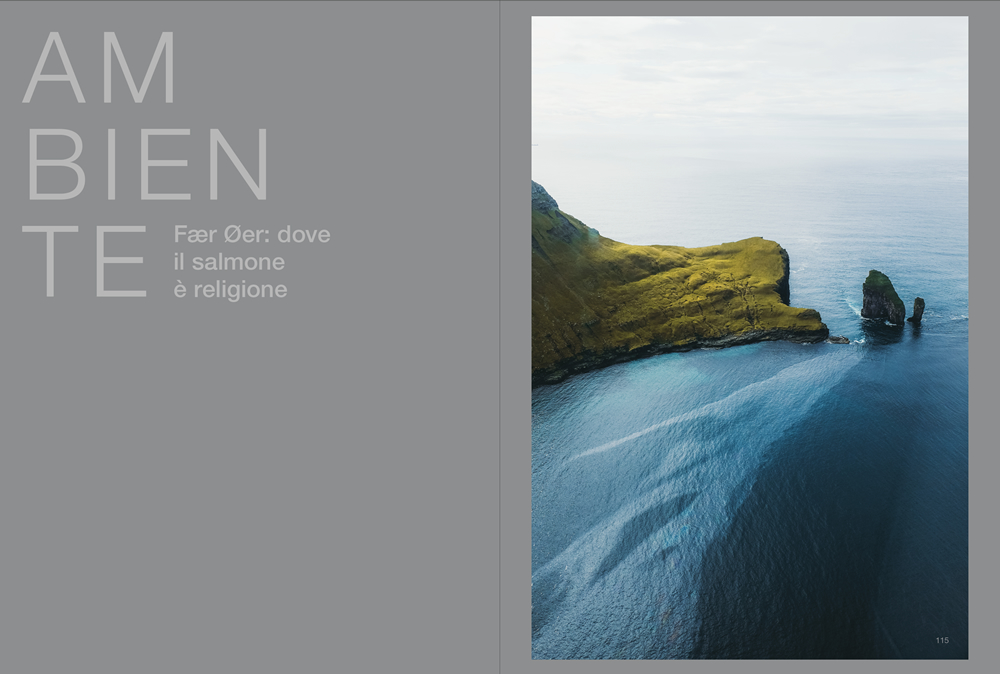
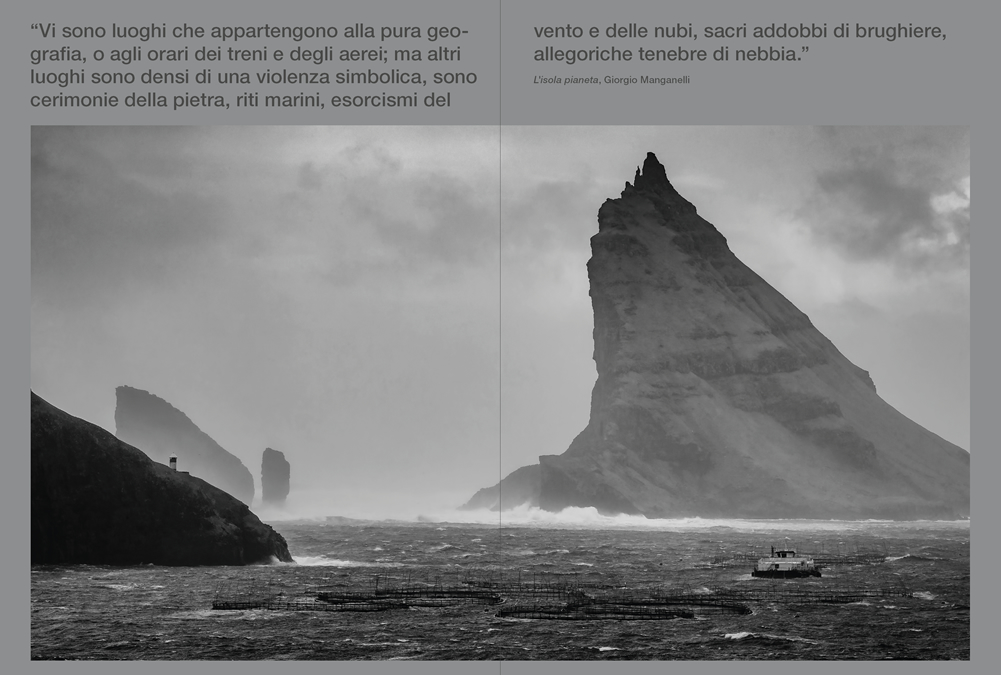
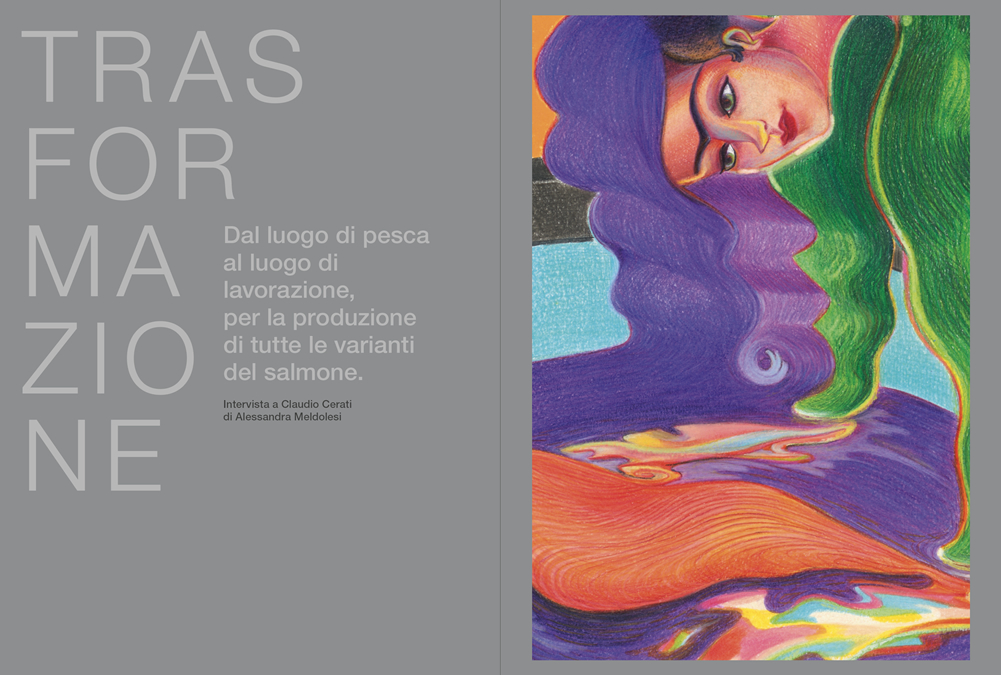
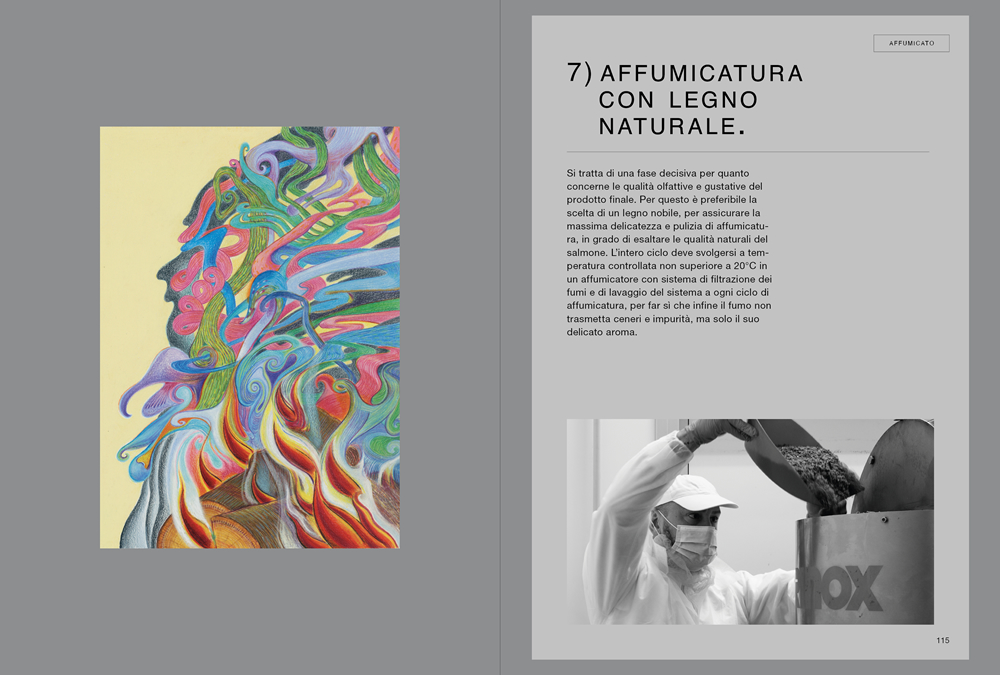
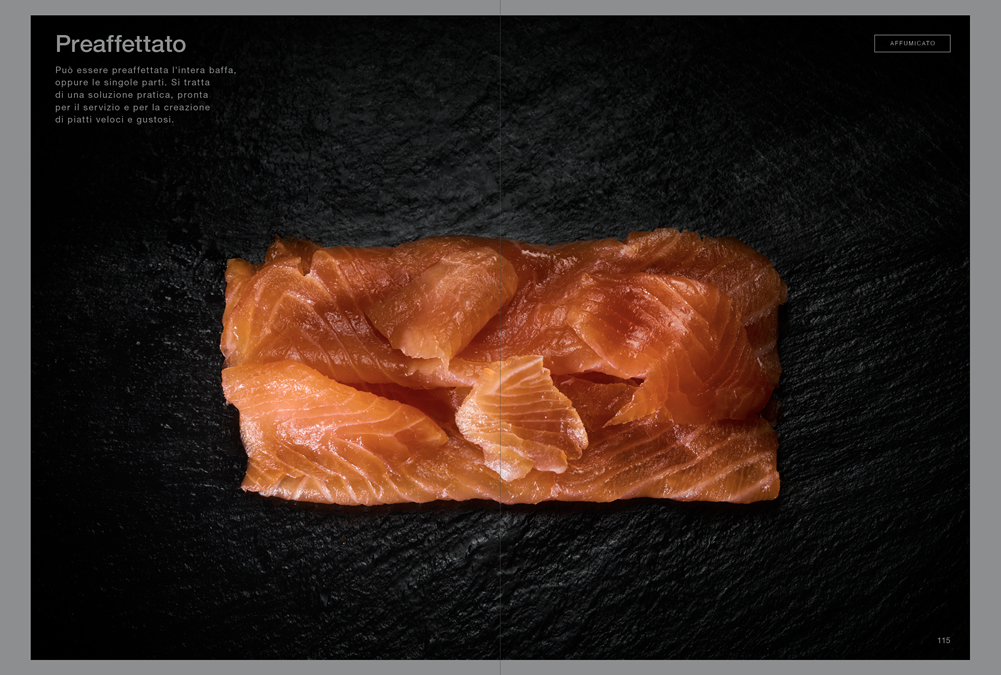
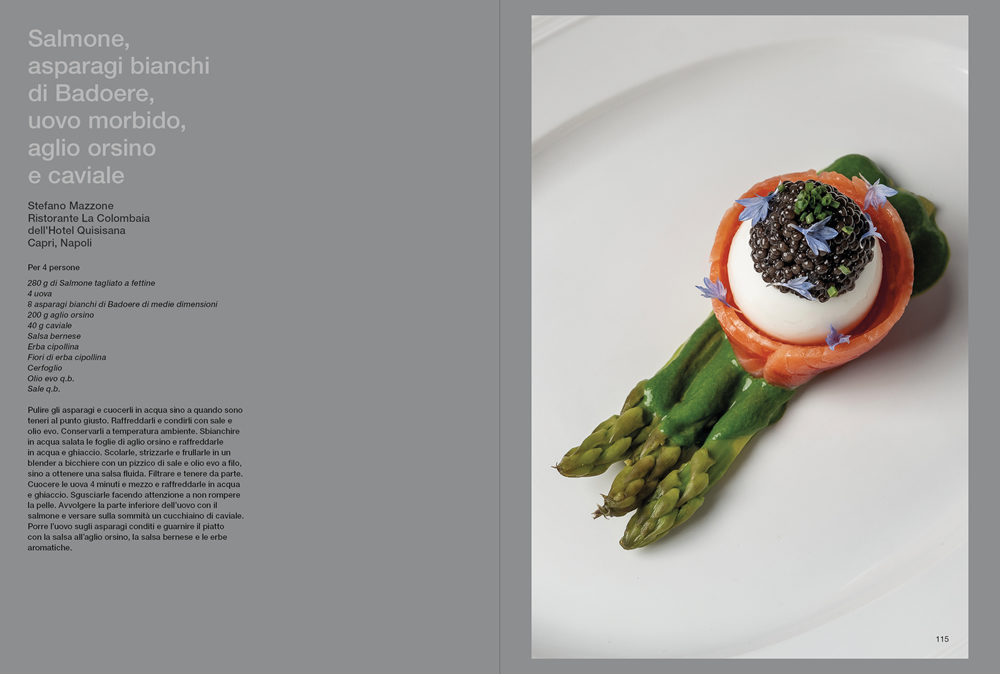
From the preface by Andrea Grignaffini King of the river fish, it is a portentous animal that is born in fresh waters and then swims far away, towards the cold seas and deep oceans that will host it until the instinct to reproduce arises predominantly. It is at that moment that this extraordinary migrant begins its inexorable journey backwards, retracing the currents that will lead it back to its place of origin. To survive such an endeavour is a rare event; whether male or female, they will die where they have received and, in turn, given life. A phenomenal example of courage and determination, salmon has occupied a prominent place in the boundless universe of gastronomy since the dawn of time. Suffice it to say that the historical evidence linked to its processing, such as smoking or marinating, traces the history of a foodstuff from cultures and traditions that are very distant from each other over millennia. A type of food with prodigious nutritional properties, its meat with a rich, slightly sweet and brackish taste, salmon has been increasingly mistreated for some time now. Granted that the clear majority of salmon consumed in the world are farmed and not fished, data and information on the nefariousness of the highly industrialised farming of this species, which has such an impact on ecosystems and the health of the animals themselves, affecting the quality of the final product, effectively condition consumer choices, creating mistrust. Thus, the victim of incongruous generalisations and the accomplice of those sensationalist 'scoops' that do not exhaust the subject, salmon increasingly rarely appears on the menus of both small and large restaurants, and even less is it properly valued, more likely to be confined to the hotel breakfast buffet, destined for international more than Italian palates, or reduced to co-starring, together with rather insignificant foods, in company refreshments. But intensive farming does not exhaust the entire industry, and not all producers work in an unethical manner. Just as the salmon is a fish that energetically and stubbornly defies adverse currents for a higher goal, so virtuous farmers from various countries discerningly ponder their entrepreneurial choices, validating in the light of commendable values the often unconventional direction to take.


